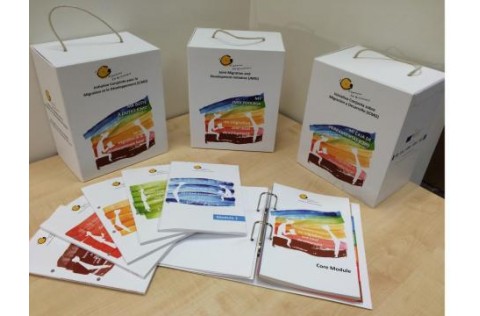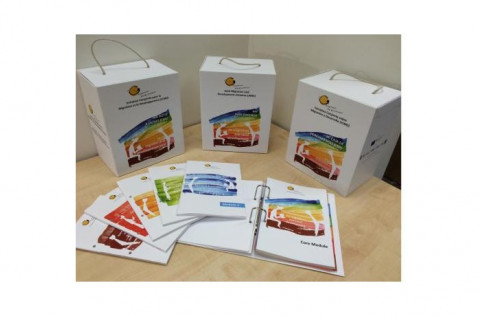Applying Integrated Policy Approaches to Accelerate the 2030 Agenda
Objectifs de Développement Durable Connexes et Objectifs du Pacte Mondial sur les Migrations
How can UN country teams help governments achieve the 2030 Agenda using integrated policy approaches, tools and mechanisms at the country level? This is a technical course for development practitioners. Participants should have a good understanding of the 2030 Agenda before starting the course to best be able to apply the tools and concepts presented.
Introduction
This course aims to train UN staff on a common approach and a core set of tools for delivering SDG policy integration support to governments.
Policy integration is emerging as the main modality of support to countries in achieving the Sustainable Development Goals (SDGs). As COVID-19 disrupted countries’ sustainable development trajectories just as we entered the Decade of Action for the SDGs, it is more important than ever before for UN agencies to come together and offer coherent expertise and policy advice to UN Country Teams (UNCTs) and governments.
This course was designed by UNDP’s Bureau for Policy and Programme Support SDG Integration team and UNICEF, with support from the UN System Staff College and will be launched in the framework of the Integrated Policy Practitioners’ Network, co-led by 9 UN agencies.
Participants in this course are welcome to join the Integrated Policy Practitioner’s Network to maintain connections and participate in discussions of relevant tools and methods.
Objectives
Upon successful completion of this course, participants will:
- Understand and use the theoretical frameworks of UN approaches to policy integration in development practice
- Be aware of the range of practical tools and methodologies available to support Governments in diagnosing complex development challenges from a systems-thinking and cross-sectoral perspective
- Take part in inter-agency and inter-disciplinary teams to support UNCTs and governments on integrated approaches to SDG implementation which could take the form of technical analysis, policy design and/or strategic priority setting
- Design integrated policy options that manage bottlenecks and harness interlinkages and synergies across sectors for acceleration of the SDGs
- Apply integrated policy thinking on post-emergency, humanitarian and/or recovery context
Course methodology
To obtain a certificate of completion for this course, participants must complete the four modules and obtain a passing grade of 80 per cent on the final quiz. The total time required to complete the course is approximately 4.5 hours.
Course contents
Module 1 - Applying Integrated Policy Approaches to Accelerate the 2030 Agenda: introduces learners to the course's objectives and key concepts in an immersive way.
Module 2 - Assessing SDG Alignment: presents a starting point for integrated policy support by giving policy integration practitioners the background and tools to assess the alignment of national development plans, policies, and budgets with the SDGs.
Module 3 - Identifying SDG Accelerators: describes approaches and tools for identifying leverage points and critical pathways for accelerating progress to realize the SDGs by 2030.
Module 4 - Enabling SDG Coherence and Coordination: provides the policy integration practitioner with background information and approaches to help UN Member States enhance horizontal and vertical coherence and integration in SDG planning, implementation and monitoring.
Target audience
UN staff from headquarters, country teams or regional offices, government representatives, development practitioners as well as members of civil society, the private sector, academia and foundations.



